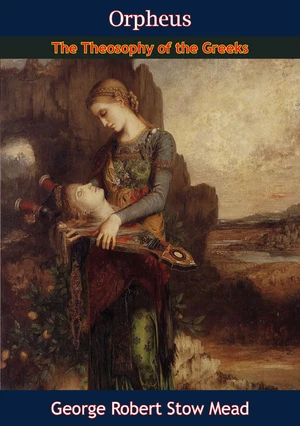WHO has not heard the romantic legend of Orpheus and Eurydice? The polished verse of Virgil, in his GeorgiME (iv. 452-527), has immortalised the story, told by âCærulean Proteusâ. But few know the importance that mythical Orpheus plays in Grecian legends, nor the many arts and sciences attributed to him by fond posterity. Orpheus was the father of the Pan-Hellenic faith, the great theologer, the man who brought to Greece the sacred rites of secret worship and taught the mysteries of nature and of God. To him the Greeks confessed they owed religion, the arts, the sciences both sacred and profane; and, therefore, in dealing with the subject I have proposed to myself in this essay, it will be necessary to treat of a theology âwhich was first mystically and symbolically promulgated by Orpheus, afterwards disseminated enigmatically through images by Pythagoras, and in the last place scientifically unfolded by Plato and his genuine disciplesâ or to use the words of Proclus, the last great master of Neoplatonism, âall the theology of the Greeks comes from Orphic mystagogy,â that is to say, initiation into the mysteries. Not only did the learned of the Pagan world ascribe the sacred science to the same source, but also the instructed of the Christian fathers (ibid., p. 466). It must not, however, be supposed that Orpheus was regarded as the âinventorâ of theology, but rather as the transmitter of the science of divine things to the Grecian world, or even as the reformer of an existing cult that, even in the early times before the legendary Trojan era, had already fallen into decay. The well-informed among the ancients recognised a common basis in the inner rites of the then existing religions, and even the least mystical of writers admit a âcommon bond of discipline,â as, for instance, Lobeck, who demonstrates that the ideas of the Egyptians, Chaldæans, OrphiME and Pythagoreans were derived from a common source.
Price history
Sep 7, 2022
€2.58

